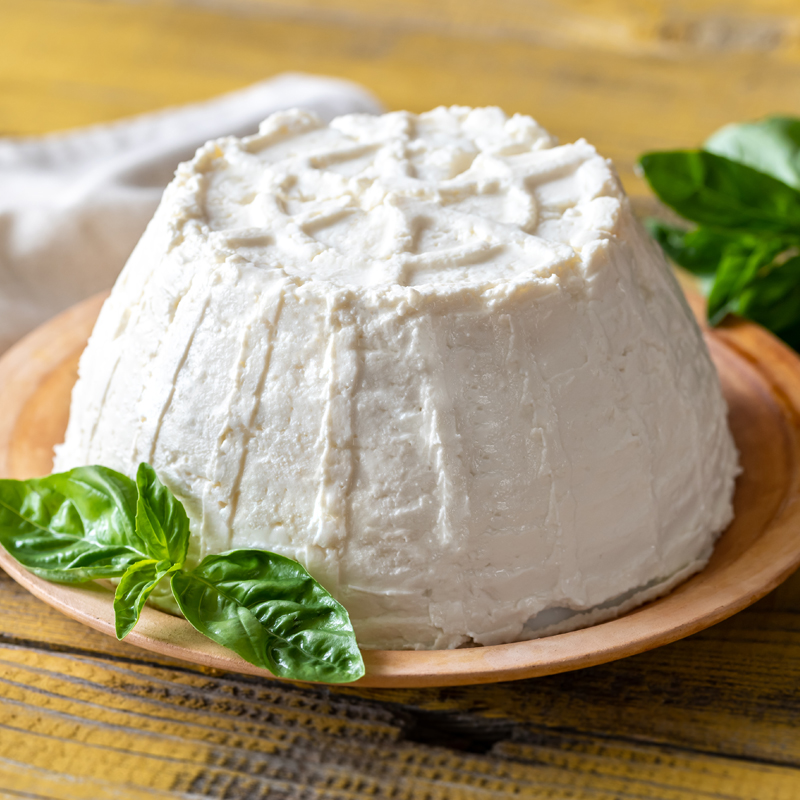
100 gr |
-- |
|
|---|---|---|
| Carbohydrate (gr) | 15.04 |
4928.47 |
| Protein (gr) | 3.59 |
1176.23 |
| Fat (gr) | 12.46 |
4083.43 |
| Fiber (gr) | 1.36 |
445.97 |
| Cholesterol (mg) | 14.64 |
4795.8 |
| Sodium (mg) | 325.27 |
106557.75 |
| Potassium (mg) | 392.16 |
128471.4 |
| Calcium (mg) | 78.15 |
25603.27 |
| Vitamin A (mg) | 46.04 |
15084.01 |
| Vitamin C (mg) | 6.16 |
2019.31 |
| Iron | 0.62 |
203.1 |
Ricotta cheese, originating from Italy, is a soft, creamy cheese known for its mild flavor and versatility. Its unique texture and nutritional value make it a popular choice for various meals and snacks.
The calories of ricotta cheese are 174 calories per 100 grams.
Here’s a detailed exploration of its benefits and uses:
Rich in Calcium
Ricotta cheese is an excellent source of calcium, which is essential for maintaining strong bones and teeth. A 100-gram serving provides approximately 206 milligrams of calcium, covering about 20% of the daily recommended intake for most adults.
High in Protein
This cheese is also a good source of protein, which supports muscle repair and overall body growth. With around 11 grams of protein per 100 grams, it’s an excellent addition to a balanced diet.
Contains Other Essential Nutrients
Ricotta cheese provides several other vital nutrients:
Low in Sodium
Compared to many other cheeses, ricotta is relatively low in sodium, making it a heart-healthy choice.
Versatile in Meals
Ricotta cheese can be enjoyed in numerous ways:
Easily Digestible
Thanks to its production process, which uses whey instead of curds, ricotta is easier to digest than many other cheeses, making it a suitable option for those with mild lactose intolerance.
Health Tips for Consumption: